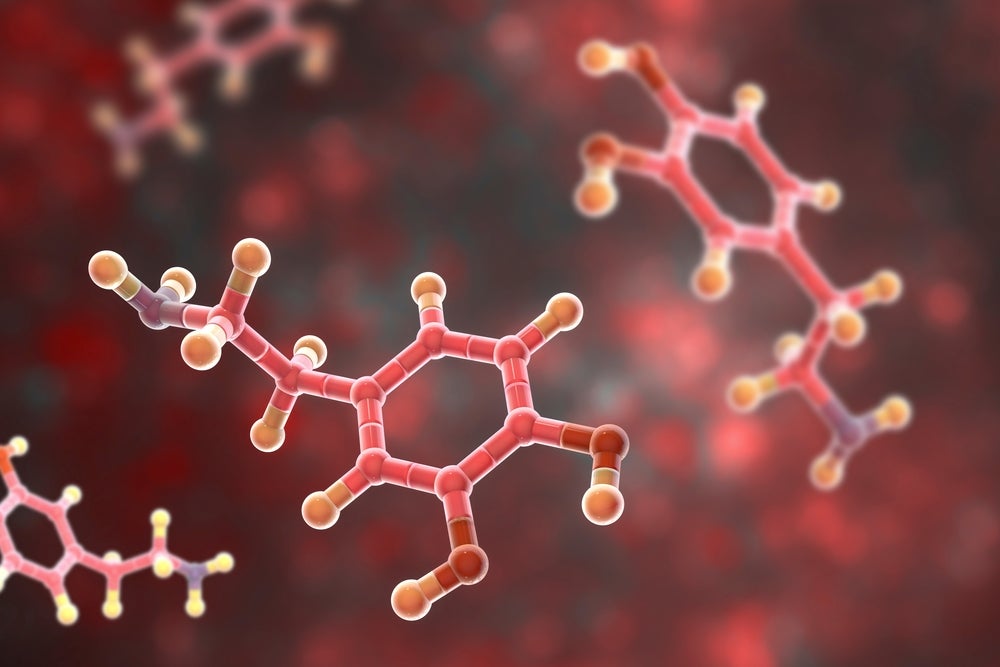New Test Developed to Predict Patient Resistance to Cancer Chemotherapy
In a groundbreaking advancement poised to revolutionize oncological treatment, scientists at the Spanish National Cancer Research Centre (CNIO) have unveiled a novel genomic test capable of predicting which cancer patients are unlikely to respond to conventional chemotherapy. This innovation not only promises to spare patients the debilitating side effects of ineffective treatments but also ushers […]


In a groundbreaking advancement poised to revolutionize oncological treatment, scientists at the Spanish National Cancer Research Centre (CNIO) have unveiled a novel genomic test capable of predicting which cancer patients are unlikely to respond to conventional chemotherapy. This innovation not only promises to spare patients the debilitating side effects of ineffective treatments but also ushers in a new era of precision medicine, where standard chemotherapeutic agents become tailored, targeted therapies.
Chemotherapy has long been a cornerstone of cancer treatment, aimed at eradicating malignant cells and halting tumor progression. However, clinical outcomes have been inconsistent, with approximately 20 to 50% of patients showing resistance to commonly used chemotherapies. These patients often endure the toxic side effects without gaining any therapeutic benefits. Geoff Macintyre, heading the Computational Oncology Group at CNIO, highlights the critical need for predictive tools that can identify such non-responders early, thus allowing clinicians to adjust treatment plans more effectively.
The team, collaborating with the University of Cambridge and the biotech startup Tailor Bio, developed a computational model that leverages chromosomal instability patterns—complex genomic alterations characterized by variations in chromosome number and structure within tumor cells. Unlike traditional approaches that focus on single gene mutations or protein expressions, this method capitalizes on the unique signatures formed by pervasive chromosomal aberrations, enabling a broader and more reliable prediction of chemoresistance.
.adsslot_Naevrp2tzI{ width:728px !important; height:90px !important; }
@media (max-width:1199px) { .adsslot_Naevrp2tzI{ width:468px !important; height:60px !important; } }
@media (max-width:767px) { .adsslot_Naevrp2tzI{ width:320px !important; height:50px !important; } }
ADVERTISEMENT
At the heart of the methodology is the identification of “signatures of chromosomal instability” (CIN), which encompass recurrent patterns of chromosome gains, losses, and rearrangements within malignant cells. These CIN patterns reflect fundamental disruptions in the tumor genome’s architecture, impacting how cancer cells respond to chemotherapeutic agents such as platinum compounds, taxanes, and anthracyclines. By quantifying these signatures through advanced computational algorithms, the researchers established robust biomarkers indicative of treatment resistance.
The study utilized an extensive dataset comprising genomic and clinical information from over 800 cancer patients diagnosed with diverse malignancies including breast, prostate, ovarian, and sarcoma cancers. Through a simulated trial framework, the researchers retrospectively analyzed patient responses to chemotherapy with respect to their tumor CIN profiles. The strong correlation between specific chromosomal instability signatures and chemotherapy outcomes validated the predictive power of the test and underscored its potential for broad clinical application across multiple cancer types.
This innovative approach marks a significant departure from conventional oncology paradigms. Traditionally, chemotherapy regimens have been prescribed based on histological cancer types and clinical staging, without deep molecular stratification. The introduction of CIN-based biomarkers introduces a new layer of genomic precision, effectively “converting” standard chemotherapies into precision medicines by personalizing treatment based on tumor biology rather than just clinical presentation.
Beyond patient benefits, the economic implications of this advancement are substantial. Avoiding ineffective chemotherapy spares healthcare systems the mounting costs associated with managing drug toxicity, hospitalization, and supportive care. Furthermore, by selecting the appropriate therapeutic agents upfront, clinicians can optimize treatment efficacy, potentially improving survival rates and quality of life.
Following the promising results of the computational study, the research consortium has secured funding from the Spanish Ministry for Digital Transformation and Public Service, backed by European Union NextGenerationEU funds. This support will facilitate the crucial next phase: prospective validation of the test in hospital settings. Collaborations with Tailor Bio and Spain’s 12 de Octubre University Hospital will focus on integrating the test into routine clinical workflows through the analysis of existing patient tissue samples, aiming to demonstrate clinical utility and readiness for implementation in controlled trials by 2026.
The translational pathway from discovery to clinic, as Macintyre elaborates, is often fraught with challenges, from regulatory hurdles to validation complexities. However, the multidisciplinary synergy between computational biology, clinical oncology, and biotech innovation provides a robust foundation to overcome these obstacles, heralding a new standard in cancer treatment personalization.
The underlying patents held by the CNIO team and collaborators reflect the novel intellectual property embedded in using copy number signatures for predicting chemotherapy response and methods enhancing the accuracy of copy number calling in targeted sequencing data. These patents signify the innovative scope of the approach and its potential for commercialization and broad clinical adoption.
This development further signals a paradigm shift in cancer treatment strategies whereby genomic instability—a hallmark feature of many malignancies—is harnessed not only as a prognostic marker but also as a predictive tool to guide therapy. By elucidating the complex chromosomal landscapes within tumors, oncologists gain unprecedented insight into tumor biology, resistance mechanisms, and optimal therapeutic avenues.
The authors of the study published in “Nature Genetics” include CNIO researchers Joe Sneath Thompson and Barbara Hernando, along with Tailor Bio’s Laura Madrid, reflecting strong international collaboration. Their work emphasizes the integration of computational simulations, large-scale genomic data analysis, and clinical insights, showcasing the potential of computational oncology to resolve long-standing challenges in cancer therapeutics.
As this technology matures toward clinical implementation, its impact could be transformative, potentially benefiting hundreds of thousands of cancer patients annually worldwide. By tailoring chemotherapy regimens to individual genomic profiles, the test promises to enhance therapeutic success rates while minimizing unnecessary toxicity, effectively redefining the concept of precision medicine in oncology.
The Spanish National Cancer Research Center (CNIO) stands at the forefront of such innovations, leveraging its extensive scientific expertise and collaborative networks to translate cutting-edge genomic science into tangible patient benefits. This latest advancement embodies their commitment to improving cancer diagnosis, treatment, and ultimately, patient survival, marking a watershed moment in the fight against cancer.
Subject of Research: Human tissue samples
Article Title: Predicting resistance to chemotherapy using chromosomal instability signatures
News Publication Date: 23-Jun-2025
Web References: http://dx.doi.org/10.1038/s41588-025-02233-y
Image Credits: Laura M. Lombardía / CNIO
Keywords: Cancer research, Chemotherapy, Cancer treatments, Computational biology
Tags: chromosomal instability in tumorsCNIO cancer research breakthroughscollaboration in cancer researchcomputational oncology advancementsgenomic test for cancer treatmentinnovative cancer treatment strategiesnon-responders to cancer treatmentnovel approaches to chemotherapy effectivenessprecision medicine in oncologypredicting chemotherapy resistance in cancer patientsside effects of chemotherapytailored therapies for cancer patients
What's Your Reaction?


































